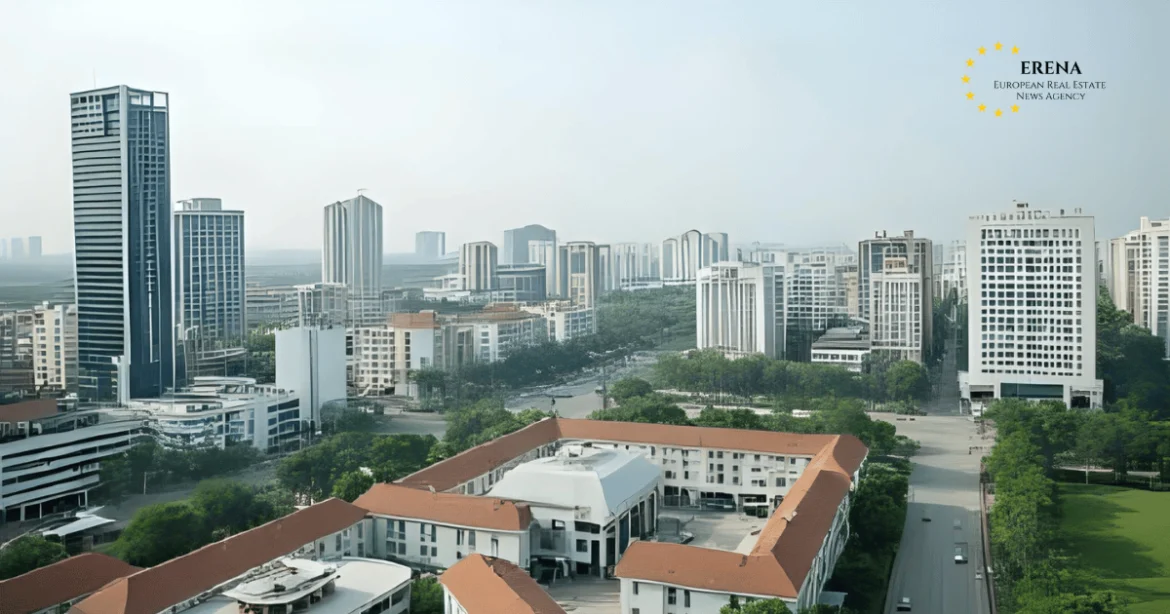Phnom Penh, the capital of Cambodia, has in recent years become one of the fastest-growing real estate markets in Southeast Asia. Modern residential complexes, office towers, and hotel projects have transformed the city’s skyline, attracting investors from across the region. However, according to CBRE Cambodia, in 2025 the market is experiencing significant volatility due to a liquidity crunch, creating new challenges for developers, buyers, and long-term investors.
Current Market Situation
Over the past decade, Phnom Penh has been a magnet for foreign capital, particularly from China, South Korea, and Singapore. Yet in the last two years, the market has cooled noticeably:
- Completed transactions have dropped by 15–20%.
- Office vacancy rates have climbed close to 25%.
- Developers are increasingly offering discounts, installment plans, and incentive packages to lure buyers.
The primary cause is restricted access to financing. Cambodian banks have tightened lending requirements, while global uncertainty has made foreign investors more cautious.
Residential Real Estate
Housing, traditionally the engine of Phnom Penh’s property market, is also showing signs of slowdown.
- In central districts, average condominium prices remain around €2,000–2,500 per m², still lower than in Hanoi or Bangkok.
- Demand has fallen, forcing developers to offer discounts of up to 15% and flexible payment terms.
- In some premium neighborhoods, prices have declined by 5–7%, opening opportunities for buyers.
Commercial Real Estate
The office sector is struggling with oversupply. Many projects launched before the pandemic were delivered in the past two years, saturating the market. Rental rates have stabilized, but occupancy remains under pressure.
Meanwhile, the hospitality sector is showing gradual recovery as tourism rebounds, though growth is slower than expected.
Key Challenges
- Limited access to credit — banks are enforcing stricter requirements, curbing lending to developers.
- Heavy reliance on foreign capital — more than 60% of housing demand is linked to overseas investors.
- Rising construction costs — building material prices have climbed by 8–12% over the past year.
Opportunities for Investors
Despite challenges, Phnom Penh still offers long-term investment potential.
- Falling apartment prices create opportunities for buyers to secure prime assets.
- Land in suburban areas remains relatively affordable, at €700–900 per m², leaving room for future appreciation.
- With reduced competition, investors willing to take calculated risks can position themselves advantageously.
Market Insight
“This review reflects a market adjusting to broader economic pressures yet still demonstrating pockets of strength,”
said Kinkesa Kim, Managing Director of CBRE Cambodia, during the Mid-Year Review 2025.
This assessment highlights that while volatility is creating uncertainty, certain segments of the market remain resilient and could provide value for long-term investors.
Long-Term Outlook
CBRE forecasts that volatility will persist until the end of 2025. However, the medium-term outlook remains positive thanks to:
- population growth and rapid urbanization,
- new infrastructure projects, including an expressway connecting Phnom Penh with the new international airport,
- government policies designed to encourage foreign investment,
- the ongoing recovery of tourism.
Regional Comparisons
- In Hanoi, luxury condominiums sell for €3,500–4,000 per m².
- In Bangkok, they cost around €3,000–3,200 per m².
- In Phnom Penh, comparable properties are priced at €2,000–2,500 per m², making the city more affordable but also riskier.
Conclusion
Phnom Penh’s real estate market is undergoing a challenging phase. The liquidity crunch and investor caution have slowed growth and created volatility. Yet the city’s fundamentals — its strategic location, urbanization, and infrastructure expansion — provide a strong foundation for recovery.
For forward-thinking investors, the current uncertainty may prove to be an entry point: those who take advantage of lower prices today could reap significant rewards once the market stabilizes and growth resumes.

